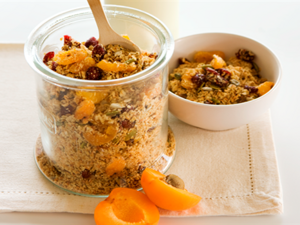
4 Weeks Pregnant - Trimester 1
Almost one month already! There are lots of things happening inside you this week.
Your Baby at 3 Weeks
Your baby is starting the process of folding into a more recognisable 3-dimensional body. This week is also an important milestone in embryonic development: the beginning of what is called organogenesis. The outlines of many internal organs are starting to form, as is a bloodstream. At the end of the fourth week, your baby is about 0.2mm in length (around the size of a poppy seed), and the foetal-placental circulation is set up and running. Amazingly, since conception, your baby’s weight has multiplied by 10,000!
At 4 weeks, your baby is around the size of a poppy seed. Your baby will be making itself at home in your uterine lining now.
Your Body at 4 Weeks Pregnant
A big wave of hormones are being produced which are essential for your baby, ensuring they’ve got all they need to grow. Those hormones will prevent you from having a period again while you’re pregnant and they also help form the placenta. What does the placenta do? It supplies baby with oxygen and nutrients and serves to protect your little one against many germs and pollutants.
Diet for Week 4 of Pregnancy
Eating healthily during pregnancy is important and can sometimes be a bit confusing. A great rule of thumb is to focus on eating good quality food and set up good habits early in your pregnancy.
Make sure you take special care in preparing your food to avoid the risk of food poisoning, both for you and baby.
- Thoroughly cook your meat: steak tartare and undercooked meats are no-no’s!
- Wash your hands properly after gardening or feeding pets, before cooking, and make sure you wash fruits and vegetables really well.
- Avoid eating leftovers that were not immediately stored and cooled in the fridge in case bacteria might have had a chance to grow.
A little caution can go a long way to keeping you and your baby feeling good!
Tips for Week 4 of Pregnancy
Is it a good idea to take a vitamin-mineral supplement while pregnant?
Pregnant women have higher dietary recommendations for many nutrients, including protein, iron, zinc, docosahexanoic acid (DHA – a healthy fat found in fish and some animal foods), and folic acid to name a few. Taking a vitamin and mineral supplement can help fill some nutrient gaps. As with any medication, consult your doctor before taking any dietary supplements during your pregnancy. They can prescribe a supplement for you that caters to your pregnancy.





